
REFLECTIONS | ISSUE NO. 3 UT
AMERICAN JOURNALISTS
ASIAN
ASSOCIATION
by Raiyan Shaik
What’s your major? by
Teresa Do
Loneliness is a Three Act Play
by Nirvika Dhanasri
contents 04 08 12 16 Growing into Kaushiki by Kaushiki
anger
Roy sacrifice: the line between guilt and
Model Minority Myth and how Asian and Asian American Communities have perpetuated perfectionism
by Kevin Vu
diaspora dissonance: the generational divide of emotions
by Hillary Ma
i will never know my mother
by Dilen Lee
Through the Lens of my Parents
by Angela Lim
Watering Down Culture
by Alishba Javaid
Triptych by Byron Xu
20 30 24 34 38 40
I’ve always hated my name.
Kaushiki is a name no one can pronounce on the first try – and sometimes, not even on the second one. In fact, it now takes me a couple of seconds to pronounce it correctly when our Bengali family friends ask me about it.
“It’s fine,” I thought as a five-year-old. “I’ll change it when I get older.”
And I kept the intention for several years as I moved from state to state, losing friends, restarting my life every year –and sometimes, twice a year. As a brown immigrant kid living in the Midwest, Kaushiki was not an easy name to have. It often brought forth unwanted attention, disrespectful curiosity and odd looks that didn’t sit well with me.
Only after moving to India for two years did I realize how special my once-resented name was.
Even after my parents sat me down and explained to me why we had moved, I still couldn’t grasp why we packed up our whole lives and moved to a “foreign” country.
For six months, I would cry as soon as I woke up to go to school. I wouldn’t talk to a single family member as dozens of them visited us weekly. I simply didn’t want to leave the little pit of sadness and self-pity that 11-year-old me had created. The only upside I could maybe acknowledge was how people could pronounce my name in one try.
into
“As a brown immigrant kid living in the Midwest, Kaushiki was not an easy name to have.”
5
BY KAUSHIKI ROY
My parents like to joke now that the only time they saw joy on my face was when we attended my first Durga Puja in India.
Durga Puja, a four-day cultural event, celebrates the Queen of the Gods, Durga, who is also the Goddess of strength, protection and war. I’d attended small recreations of the festival in America every year. But in Kolkata, where Durga is worshiped heavily, it was like the city had erupted with joy: a myriad of colors, jewelry, food, and people swarmed the streets. It was our version of Christmas where even if you weren’t religious, it was still a time to see family, exchange gifts and walk around the city to see how different people celebrated the Goddess.
During the third and most important day of the festival, my parents and I attended the largest Durga Puja celebration in the city. There were maybe a thousand people at the venue, three refreshments sections and a performance stage with groups performing Bengali folk dances and songs.
I was wandering around in awe of the beauty when I heard my name being sung on stage. Again and again, “Kaushiki” was sung out in a beautiful melody. It was the first time I’d ever heard my name being said in such a breathtaking way.

6
“It was the first time I’d ever heard my name being said in such a breathtaking way.”
Later, when I asked my mother about it, she laughed fondly.
“Well, Goddess Durga has nine different forms she presents herself in,” she said. “In one of her forms, she is called Kaushiki.”
My name – the one I’d despised for my whole life – was the name of the Goddess that I’d seen being revered so widely? And as I was having my inner monologue, my mother wasn’t finished talking.

“I fought to give you that name,” she said. “Everyone else had other names for you, but they seemed so bland. And Kaushiki means ‘covered in silk,’ precious like you are to us. So smile a little more from now on.”
She pretended to sound light-hearted, but I could see her strength and struggle in her eyes. I could see the sorrow of a mother who thought she’d failed her daughter. I could see the pride and adoration she carried for raising me through the toughest of times.
I can’t say I had my epiphany right then and there. I was only 11 years-old. But as the years went on, I started saying my name with more confidence – once, twice, however many times I was asked to repeat it. No longer did I want to change it to something easier for other people to say. How could I when the strongest woman I had the pleasure of being born from fought so hard for it.
I no longer hate my name. I’ve learned to grow into it.
7
“My name – the one I’d despised for my whole life – was the name of the Goddess that I’d seen being revered so widely?”
sacrifice: the line between guilt and anger
BY RAIYAN SHAIK
8
Sacrifice plays a complicated role in my life. A concept often familiar to immigrant children. Our parents have undeniably sacrificed more than we’ll ever know. My parents left their strong communities, their loved ones, their languages, their food, and a large piece of their heart with their homeland. It was a sacrifice they were willing to make for me and my brother, for our futures. It was their American Dream tax.
But it was a decision made without me.
My parents moved to the United States from India in 2002. They never intended to stay very long; it was only for my dad’s job. As a child we bounced between countries, never having a permanent home in either. But, in 2010, we were done. It was time to move back to India, permanently this time. I packed up my life, which at the time, wasn’t much. Holiday Barbie in hand, I put on my light-up Skechers, my Dora back-pack and said my goodbyes. I couldn’t conceptualize the huge change that was coming; I was just excited to play the games on the plane ride there. But soon enough, I traded in my Skechers for Bata, Dora for Chota Bheem, and Barbie for Tinkle Comics. The real culture shock came when I started school, but the realities of corporal punishment, higher academic standards, and an incredibly strict dress code which mandated the length of our nails are for another day. I just went on living in the way only a six-year-old knows how, and it would be three years before my parents decided that the United States had better opportunities for us, in more ways than one.
They say it takes a village to raise a child. But the village that helped to raise us disappeared overnight, and in its place remained the best efforts of my young parents.
My parents always thought about the long term: trading the comforts of India for the success the U.S could bring to their children in the future. Their parenting was no different. Tough love often feels synonymous with Asian immigrants. Tough love thinks ahead; it creates opportunities for future success, even if it’s hard and nearly unforgiving in the moment. It’s the only love I’ve known for most of my life. It’s well-intentioned. I know that. Yet, tough love still has a way of breeding resentment. All of my parents’ pushes for me to rise to the top, to achieve the success that they wanted me to, coalesced into one intrusive thought in my adolescent brain: you are not enough.
It’s enough to understand that as the eldest daughter of my immigrant family, my parents’ traditional beliefs, sky-high expectations, and years of intergenerational familial pain cemented a cornerstone of my heart with ribbons of sadness running through it. I can now attribute many of my self esteem issues and anxiety to trying to live this perfect life that was expected of me. I was a servant to my parents’ wishes by my own choice. I wanted more than anything in the world to make them proud, to keep them from feeling disappointed after they had done so much for me.
9
Then there comes a time when you realize you don’t belong to your parents.
You don’t belong to anyone but yourself. And in those moments, when I realized what had happened, I was angry. I was angry that my parents saw any slight self-serving action as an attack on them. I was angry that I spent my entire childhood tiptoeing around their feelings when all I wanted was to be a kid. I was angry that my heart was dripping in empathy for them, yet I wasn’t afforded the same understanding.
I was raging in complete and total silence. I felt like a fighting bull trapped in an indestructible porcelain doll: no matter how angry I was, I couldn’t show it because of the big, bad word looming over my head in capital letters: SACRIFICE.
It’s sacrifice that kept me listening and comforting my mother’s worst traumas from a young age even when it felt like a ton of bricks sitting on my heart. It’s sacrifice that made me construct an iron gate between me and my parents, preventing me from ever asking for help. It’s sacrifice that would ring through my head and numb my tongue, so I would keep my mouth shut and listen at all times, even when they were wrong. This defining decision, this sacrifice, was as constant in my life as the rising sun.
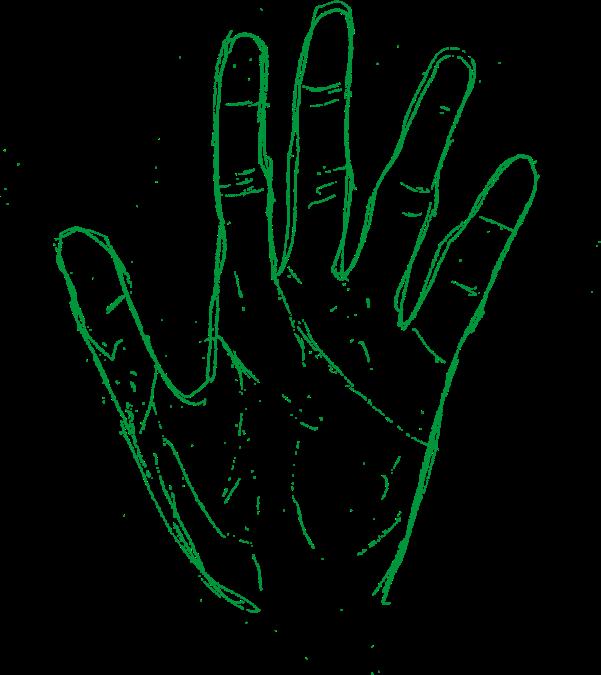
Their sacrifice becomes your burden. This burden then shapes your entire life. No one ever says “because I suffered this, you must now take on the emotional burdens of this family as your own.” But it’s implied. It’s silently expected, and there’s a gnawing feeling that if you don’t, this family falls apart whether that’s true or not. So, that’s what I did. And the very burden that fueled the flames of my anger also tamed it with this heavy, painful guilt.
Then, there’s the oh-so-icky matter of love: the object of sonnets and tragedy. My parents’ love was quiet, a stark difference from the love my friends grew up on. Six pieces of cantaloupe, four apple slices, and a handful of grapes spelled I’m sorry. A crisp $20 dollar bill left on my desk the morning before a field trip spelled I love you. And the biggest of them all, my mother’s private, tearful calls to India, the place she wanted to be, screamed I would do anything for you. I could have lived a happy, successful life in India; we’ll never know. Yet, I can’t help but always be grateful to my parents. If not for the product of building a life in the US, then for the sacrifice that they made, which left almost nothing for themselves and everything for their children.
That, to me, is love.
10
“You don’t belong to anyone but yourself.”
So, you’re stuck. You’re angry and then you’re guilty that you’re angry and then you’re angry that you’re guilty and the cycle continues. But that isn’t everything. If there’s one thing I’ve learned about cycles is that they can be broken. It takes a ton of work, but the end is not out of sight.
I’ve come to realize a couple of things since. My anger and guilt ran my life, and while I acknowledge that this is just a part of being human, I couldn’t let these emotions consume me. I deserved more than that. I also realized, after creating physical distance between myself and my parents as I started my journey to adulthood, that I couldn’t constantly afford to make others happy. With the weight of the world on my shoulders, I couldn’t possibly jump through the hoops I wanted to make my parents happy, and if I somehow managed, I wouldn’t be happy myself doing it. The transition is difficult, and when these expectations are challenged, my parents are undoubtedly going to push back. But, in the small happinesses that I am willing to grant myself, I lower the threshold for how much anger and guilt I can harbor. In the friendships I make, in the art I create, in the books I read, in the stupid, silly mistakes I finally allow myself to make, there’s one less brick on my heart and one more smile in my memory.
After years and years of this family pressure, burden and expectation still control a part of my life. I doubt I will be able to actually talk to my parents about it any time soon, at least not until they’re willing to go to therapy. However, there’s a decision that we can all make, to let go. That’s not to say it isn’t really, really, really hard; because it is. But believing that granting yourself happinesses is not wrong and not an affront to the sacrifice your parents may have made is the beginning of a necessary healing process. Especially if you don’t want to traumatize a new generation of kids. In the end, happiness is not finite meaning constraints on your happiness isn’t the way to increase your parents’ happiness.
So, if there’s an epiphany to be had, it’s this: Your happiness is not the tradeoff for a sacrifice. And if you believe it is, the battle between anger and guilt will never end.
11
“If there’s one thing I’ve learned about cycles is that they can be broken.”
What’s your major
STEM really isn’t all that.
In case you live under a rock or don’t get the same lectures from your dad that I do, STEM stands for science, technology, engineering, and math. It’s the path that every Asian parent I know wants for their kid, and it’s the path that has been pushed onto me for as long as I can remember.
For a short time, their lofty aspirations drove my future plans. Around the age of 5, I dreamed of becoming a nurse. I was ecstatic to follow a path that my parents deemed acceptable until I found out I would have to handle needles.
I hated needles. My dreams were crushed.
At age 10, I went through my “rebellious” phase when I told my parents I wanted to be a writer, to which I was met with laughter and teasing. Without my parent’s support, I didn’t really take myself seriously. My dreams of authoring a published book faded into the background as I “got serious” about my future plans.
BY TERESA DO ?
At age 13, I took my first computer science class. I used to describe that I “fell in love with coding,” but looking back, that was an exaggeration. My “love” for coding was conditional: I was decent at it, it was a lucrative path, and it was the T in STEM. It was good enough for me.
A perfect career for the perfect Asian daughter.
That isn’t to say that I didn’t enjoy coding as an activity, but when I used the phrase that “I fell in love with coding” on my application to be a computer science major at UT, it was definitely a stretch.
A stretch that UT saw through. I wasn’t accepted into UT for computer science as my first choice major nor was I accepted for electrical engineering as my second. Instead, I was accepted for journalism, my third choice major, the major I had put on there as a tribute to my 10-year-old self.
12

13
“My ‘love’ for coding was conditional: I was decent at it, it was a lucrative path, and it was the T in STEM. It was good enough for me.”
A tribute that suddenly and drastically changed my life plan.
I remember feeling like the world had ended. Tears rolled down my face as I texted everyone I knew that I had failed. I had pushed myself past the boundaries of physical, mental, and emotional exhaustion from schooling, but it wasn’t enough. The options left were to upend my life here and go into debt studying computer engineering in California or attending UT Austin, hoping that I could transfer into computer science at some point against seemingly impossible odds. With a heavy heart, I chose the latter.
It’s been a semester since that decision; That’s why I can say with full confidence: STEM really isn’t all that.
That isn’t to put down the STEM girls that did make it. I still wish I were you sometimes. However, I have found so much joy, gratitude, and love for the path that I did end up taking. I find myself talking excitedly with my roommate about the story I’m pursuing or the journalistic techniques I’m learning, feelings I didn’t exactly have when I was pursuing computer science full time.
STEM is important and STEM is necessary, but STEM is not the only path someone can take.
14
“I have found so much joy, gratitude, and love for the path that I did end up taking.”
With full transparency, I’m still working on a transfer to computer science. I want to keep my options open (and my dad happy). A part of me still blames myself for “failing” to become the STEM girlie that I envisioned at age 13. However, I don’t necessarily feel the same devastation that I did when I opened up my acceptance letter to UT to find the words “Journalism” written there instead of Computer Science. In fact, looking back on the letter, there’s a sense of pride — pride in knowing that I took a leap with my decision to attend UT Austin for journalism and somehow stuck the landing as I start to learn about a deeply undervalued yet important field. While I still freeze whenever my dad brings up the transfer question, I know that at the end of the day, nothing will bring me more joy than pursuing what makes me happy.
Whether or not that happens to be computer science, journalism, or a weird combination of the two is to be decided, but that decision is mine to make and mine to make alone.

It is with the same joy, gratitude, and love from this decision that I write to AAJA for helping me to see that there is a lot more than STEM out there.
That we all are a lot more than the dreams of our parents.
15
Loneliness is a Three Act Play
BY NIRVIKA DHANASRI
16
Before a lonely night comes a period of possibility. A moment to ponder the likelihood of your life changing. You wonder what it would take to stop feeling alone, how much effort exactly, and how many people you need in your life. The thought is so exhausting you give up as soon as you begin. Like grief, loneliness can be split into phases, but you prefer acts. It’s all a show to you, a performance, even when no one is around.
IN ACT I, you are at your most decisive. You decide you don’t have anyone. Therefore you decide you don’t need anyone. You decided you were okay like this. Not just okay, solid, with sure durability only you can maintain. You decide that time is what you make of it, and because you’re alone, only you can decide what to do with it. You decide you are powerful for this. Without an audience, you are free, unwatched, and completely understood.
IN ACT II, you are at your most indulgent and creative. However, your creativity only expands beyond the same few things, but each is the same comfortable sweet every time. The first thing that comes to mind is a cup of tea, preferably herbal, sweetened to sickness, coupled with a good book or movie. Next, you dance. You dance because you have realized that nobody is watching and nobody will, and you can move your body however you please. It is around the third sip of tea and fifth jerk of your hip when you finally say to yourself, “this is nice.” Realizing you are alone is difficult to admit, but embracing it fills you with a certain superiority because, at this moment, you think you are the only one who can enjoy yourself like this. You praise yourself for your independence and shove the craving for dependency so far away from your brain that it lands on your heart. Because dependence turns a solid woman into liquid, it makes her unable to take form without something else, someone else. You might even write, but that is rare because it is hard to think straight in this “You’re happy you’re alone” state since writing would require you to acknowledge the thoughts that say otherwise. The next hour or two is this: sipping, reading, watching, dancing, and ignoring. And thus, Act II is over, and the only prop left on stage is your bed. No more books, music, or sticky teacups left— only you.
17
IN ACT III, you are most grounded and philosophical. You have done everything you wanted and everything you could. Your muscles ache, and all that dancing made you more uncomfortably sweaty than free. All that is left to do is lay down in bed and think. You don’t know why you think so much, and perhaps, you are making up for the conversation you missed by not being around anyone. So your brain decides to form its dialogue. First, it creates fake conversations you would have with people you already know, like the cute boy in Biology or your sexy coworker. Now you can say the things you wished you’d say. And they say exactly what you want to hear right back to you. If life were a play, just like loneliness, Act III is where you dwell over the technical mistakes you made in the 9th grade, your senior year, and two months ago in college. You also start thinking about the books you haven’t read, the experiences you haven’t had, and the people you miss. It is in this act you are reminded how terrible this all is. How unbearable these lonely nights are. Because what is a tea party without fruitful conversation? And what is a dance party without the heat of other bodies? Now you are liquid, melting into the crevices of your mattress, unable to hold form without the strength of your imagination. Tomorrow you wake up alone again in the mess you’ve made. Aching for an audience.
18
“Like grief, loneliness can be split into phases, but you prefer acts.

19
It’s all a show to you, a performance, even when no one is around.”
Model Minority Myth and how Asian and Asian American Communities have perpetuated perfectionism
BY KEVIN VU
20
Iremember talking to a friend and discussing the model minority myth. He’s the type of guy who believes in meritocracy and claims capitalism is the system that will last forever. And unsurprisingly, he tells me, “What’s so bad about the model minority myth? Isn’t it good that you guys [Asian Americans] are being perceived as smart and hardworking?”
It’s this narrative and stereotype we see and hear often in television media and even social media about how Asians are geniuses who go onto having successful careers like doctors or engineers because they stuck to the rules and worked hard to get to where they are. Cringey posts from Facebook groups like Subtle Asian Traits about tiger parents being so strict on us for getting a B in math or how we can’t stay out late because we should study.
God, I hate these posts.
But to be fair, it’s partially true. According to a Census Bureau 2021 report, Asians had the highest median household income out of any race in America with an average of $101,418, higher than White Americans who had a median income of $74,262.
Then why am I complaining about this? Isn’t it great that us Asian Americans are so successful in America? Look at us; we are achieving the American dream our parents drill into our heads.
But that’s not really the case. We must look beyond our successes, our boba liberal lenses, and face the hard truth of the model minority myth. The model minority myth is what happens when we disregard other races/ethnicities and
wealth disparity, only focusing on the successes displayed in a monolithic view.
This sentiment that Asians are the highest earned community does not hold true for all ethnicities, as Asian Americans are the racial group with the largest wealth gap. According to a 2018 report by the Pew Research Center, Asians in the top 10% income distribution earned 10.7 times as much as Asians in the bottom 10%. What we don’t see amongst the many affluent Asian households are the 1.7 million undocumented working-class Asian immigrants, the fact that Asians are the poorest immigrant group in New York, the place where the titular couple in Crazy Rich Asians resides.
As I was researching for this piece, I saw countless threads asking why there aren’t many homeless Asians in western societies. Bullshit. I go to my local Asian district in Houston and see tens of Asian homeless people on the streets, sleeping in abandoned buildings and begging for money. This seems like a far outcry from the stereotypical affluent Asian Americans that a lot of people think of today.
Asian Americans are not a monolith. There are over 50 ethnicities with different cultures and backgrounds in the United States. By grouping us all together, we cave into the stereotypes that all Asians are smart and hardworking, denying access to Asian American populations that need social welfare and other assistance opportunities. We are more than just “smart, hardworking, keeping our noses to the books” people. We are people with a long, traumatizing history filled with beautiful languages, amazing foods, and people that have more to offer than just schools and good grades.
21
ASIAN PARENTS AND PERFECTIONISM
Then why is it that we are told by our parents to study hard, do well on our tests, and never slack off? Why does my dad yell at me for getting a math question wrong? Or why did my aunt want me to be in the gifted and talented program so bad?There must be a reason why our parents are so harsh on us to achieve in our academics and extracurriculars.
My parents and many other Asian immigrants fled to the United States for the American dream not only for themselves, but for their children as well. My mother works as a hair salonist and my dad works odd-jobs, both getting paid less than they deserve, but still sacrificing their time and bodies to provide for my brother and I the education and opportunities that we are afforded.
I love my parents for that, but at the same time I cannot look away from the fact that the sacrifices they made are pressuring. And that’s something I wince at as I type this out. But it’s the truth.
Our parents often tell us as children that we must succeed, because if we fail, then they have failed as a parent.
We can blame things such as meritocracy, capitalism, and the so-called “American dream” as it places this emphasis on monetary wealth and social standing, creating an unrealistic expectation that our hard-work and talent will lead to our successes. And knowing the sacrifice they put on, I and many others want to achieve and do well in order to show to our parents that their time and effort wasn’t for nothing, to prove to them that we can make it. It’s a burden for both the parent and the child.
Although it’s fine to care about your child’s education and future, I think parents must remember that your children are just children. They are not your doll that you control for the means of bragging points. They are human as well. Humans that are still developing physically, mentally, and emotionally. Don’t scream or yell at them for getting a bad grade or slacking off. Spend time with your children and guide them towards the path they see fit. Eighteen years will go by fast.
22
“I and many others want to achieve and do well in order to show to our parents that their time and effort wasn’t for nothing.”
HOW CAN WE ESCAPE THE PERFECTIONIST MINDSET?
I remember talking to a friend about perfectionism and she told me that she grew up with the perfectionism mindset of prioritizing her grades over herself, and that it’s too late for her to stop being a perfectionist. As I leave the PCL at 10 pm and walk past the hundreds of other students who plan on staying there and studying until 2 or 3 am, maybe even an all-nighter, I wonder why we sacrifice our bodies and our minds for a good grade on a test. Why do we find it temporarily fulfilling to see a high number on our transcript?
I’m not here to discourage you. But I want to leave this message to those who find themselves crippled with unfair expectations from your parents, peers, and society. Take it slow. spiring for perfection is not a bad trait. What’s harmful is this feeling that you must always be perfect. You have only one life, and it’s okay to slow down. You are not a perfectionist. You are someone who has been pressured by your parents, school, and society into believing that you
should never fail and that hard work is the only way through life. More than less, it’s where you are born and the conditions around you that usually leads to your success. Good grades? Economic status? Yeah, they are good, but they say nothing about you as a person. You are more than a transcript. You are more than the items and objects that we place an imagined value on. Perfectionism places an unfair expectation on all of us, and you shouldn’t be held down by it.
I think it’s important to normalize failure. We grow and learn by failing because that’s human nature. Your failures do not mean you’re less talented or dumber than others. Life can be cruel and play awful tricks on us even though we don’t deserve it. But you’re not alone. Life is a collective effort we all go through. Everyone is going through life one step at a time, and it’s up to you on where you take those steps and who you take them with. Encourage one another through times of failure and disappointments. Accept your imperfections and realize that there’s no such thing as a perfect life, it’s what you make it out to be.

23
diaspora dissonance: the generational divide of emotions
 BY HILLARY MA
BY HILLARY MA
CW // Death
My father was never one to verbally express his concerns, doubts, or worries. He claimed he suspends his emotions by “taking everything with a grain of salt.”
But I know deep inside, concealing his innermost struggles was his way of keeping us from worrying about him. No human on Earth could completely defenestrate all their fears, worries and concerns into the nonexistence— even my dad recognizes that.
Yet he continues swallowing his pain— 吃苦 (chi ku), or “eating bitterness.” This Chinese proverb encapsulates an intrinsic characteristic that glamorizes adversity as a noble characteristic of perseverance. Every Chinese parent knows the exact weight of this proverb, and my dad is no exception to its extremities.
But a Chinese father’s expression of love is unique: their love is tough yet tender, but nevertheless, unconditional. America’s narrative about Asian fathers is nothing but strict and stoic househeads tethered with emotional unavailability. However, my father is unafraid to show us his array of emotions. He spoils the ones he loves with affection.
24

25
Yet never once in my 21 years of living had I ever seen my dad shed a tear. My mother would reassure me that my father is simply not a crybaby, but I always thought there was a deeper reason.
My doubts would soon be proved true when my father announced we were suddenly taking a trip up to Wisconsin.
The only explanation my father provided me at the time was that my aunt in Wisconsin was edging near her due date in the hospital.
The next thing I knew, we were driving up to Madison, Wisconsin at 4 a.m. I cursed the whole state of Texas, damning the founding fathers of this state for making the stretch of this excessively vast land. WhydidHoustonhaveto be so far from Madison? The whole 17-hour car ride still left me in disbelief that we were returning to our hometown we left nearly seven years ago.
“Just think of it as a family reunion!” my dad exclaimed. He attempted to lift our spirits by reminding us we were visiting ouroriginalhome . My father still considered himself a cheesehead at heart even after all of these years.
But my father’s grip on the handwheel could not coax his sugar-coated excitement. The rearview mirror reflected his dark circles, revealing deeper shades of grey than usual. I knew my father was already tired of keeping his façade.
Yet he remained silent, unwilling to share his thoughts.
We arrived at my Wisconsin uncle’s house around 11 p.m. By then, some of my other relatives from Virginia had already arrived. They’d also dropped everything when they heard the news about my aunt. They, too, were tired from the spontaneous road trip.
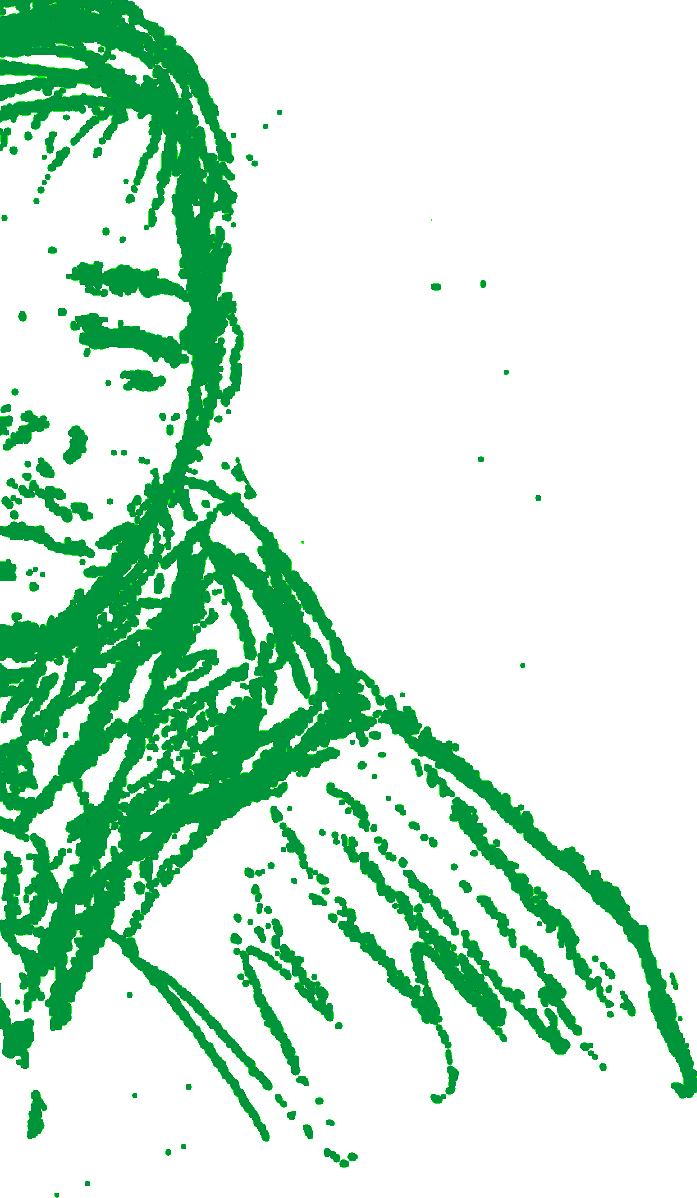
26
My aunt’s husband settled us down at the dinner table, feeding us take-out wonton soup. He then broke the real story to us. He started off prefacing that his wife had been bedridden at the local hospital due to too many pre-existing conditions currently failing her body.
Butweknewthatalready.
He continued the story and told us that his wife got the news around May that she only had a year left to live — but never bothered to tell anyone about her condition. She rejected any offers of treatment from the hospital, not knowing that would shorten her time left into half.
She did not fear death. Her silence was to protect her own husband, children, and anyone she loved from worrying about her.
She swallowed her own bitterness for the sake of her family that she could no longer protect herself. Her husband found out. Her 37-year-old son

living at their home found out. Her 33-year-old daughter living in Washington D.C found out. My uncle wanted to keep this matter within the three of them, but his daughter vehemently refused to keep secrets from the family.
“Everyone in our family has the right to know,” my cousin rationalized. I will never forget the bravery of her words.
My father looked at his older brother, unsure of what to muster out for comfort. He remained speechless, but my uncle merely shrugged everything aside and told us to rest up.
“We have a long day ahead of us tomorrow,” he said.
My uncle took us to the hospital the next morning so we could visit my aunt. He told us she had the potential to get discharged and spend Christmas at home with us, depending on her physical condition.
27
28
“My father was never the one to express his concerns, doubts, and worries verbally. Tears are still absent from his eyes— even after dropping everything to mourn alongside with his brother.”
When we entered her room, my dad’s wore expressions that were completely foreign to me. Was he in anguish? Disbelief? Nervous? Perhaps all of them combined. My father stayed disconnected with the grave atmosphere the whole time, unwilling to add more layers into the heavy aura imbued.
He was lost, and it was my first time seeing him like that.
We stayed a bit, waiting for the nurse to check my aunt’s vitals. After the physician signaled us the clear for my aunt to get discharged from the hospital, we rejoiced together, discussing dinner plans for Christmas Eve.
But we were also informed that she only had about ten days left to live.
My dad took the initiative to oversee cooking duties for Christmas Eve, recreating her favorite dish: his homemade French Onion soup. At this point, we all accepted the ending pages of her chapter. Yet, we decided to end it with a celebration of her life — one filled with her favorite foods and family gatherings.
We left Wisconsin on Christmas day. We told her our final goodbyes, wishing her, my uncle, and my two cousins well.
She passed away the day after.
I ran to my dad in his room as soon as I heard the news. His façade of distraught began faltering, but my dad stubbornly refused to let go of it.
“At least I got to make her favorite dish before she left,” my dad cheekily exclaimed. His unfazed gaze shifted to me, who had tears racing down my cheeks. He chuckled at me, extending his arm to ruffle my hair and pull me in to kiss my temple.
“You silly goose,” he told me. I held onto his embrace, hoping that somehow, I could satiate his grief through this hug. But my father just continued to stroke my hair and give me his goofiest smile.
My father was never the one to express his concerns, doubts, and worries verbally. Tears were still absent from his eyes — even after dropping everything to mourn alongside his brother. But I realized my father avoids dwelling in anguish and attempts to be the pillar of moral support for his family. His own emotions are not the priority— his family is. I let him hold his composure so he can feel at peace playing his role right. My father is no different from my aunt or my uncle: they tend to their family’s needs before anything else no matter the pain.
But it’s within the silence where you can feel the rawness of their love. Their self-sacrificing love enveloped in selflessness. When I was born, my father and his family were the first to introduce me to what love was in a familial context. At 21 years old, they’re the only ones who can make me weep the hardest.
I hold a feeble heart for my father. His capacity to love is something beyond my imagination. And every day, I thank God for allowing me to be my father’s first-born daughter.
29
i will never know my mother
 BY DILEN LEE
BY DILEN LEE
30
Growing up, I felt more aligned with my father. I wanted to do more of the things that he did – like fixing or building things – and spend more time with him. I thought that by doing the same things he did and liking the same things he liked, I would look more like a boy to others.
I remember this one time when my dad, unnie, and I were out, and he told me to pick out a toy to get. I was eyeing this toy shed with tools, but after being told it was a “boy’s” toy, I chose a pink Barbie guitar. We never played with that
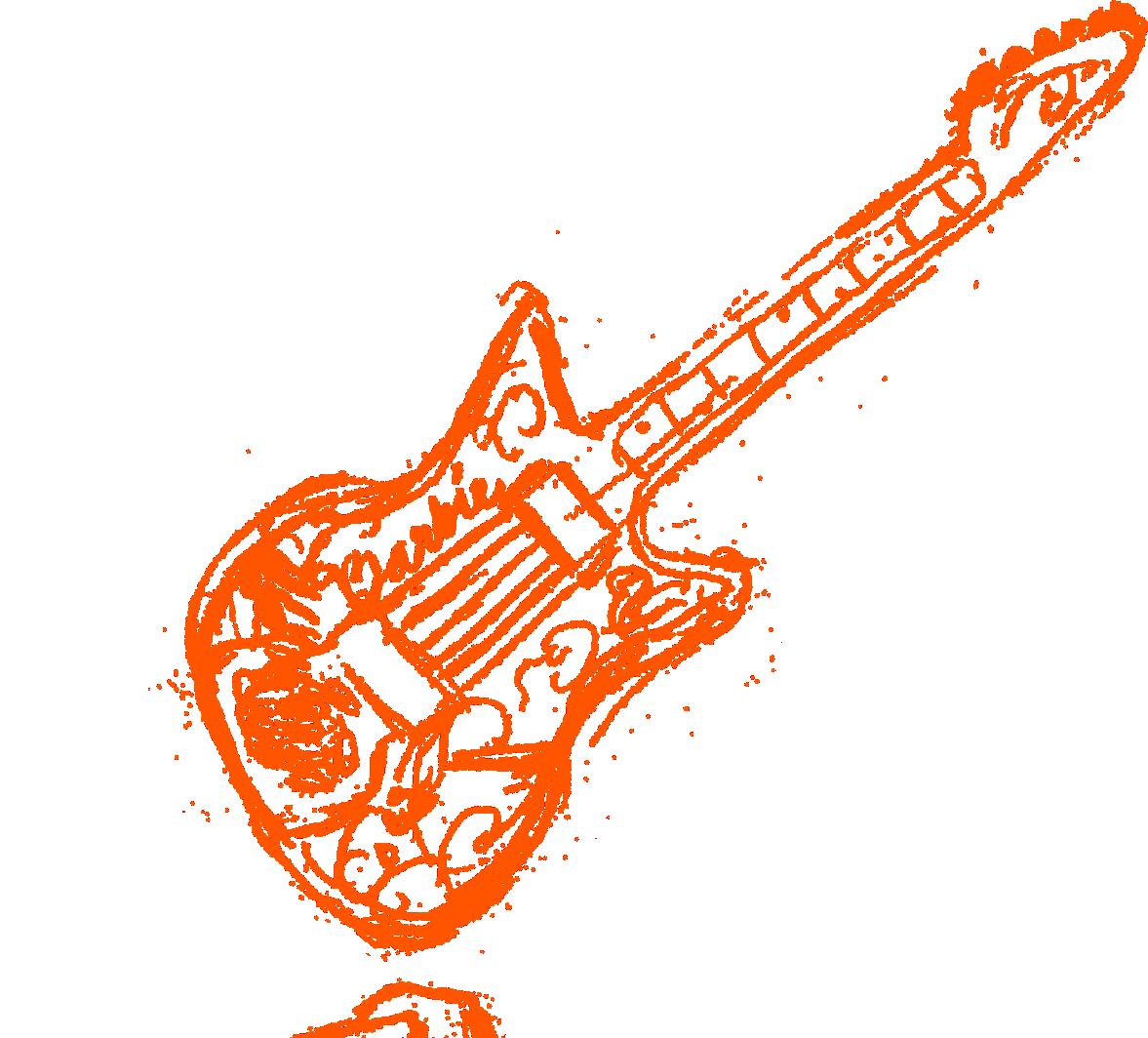
Because I had a lot of issues with my gender growing up, I tried to avoid things my mother wanted me to do. At some point, I stopped wearing the dresses and skirts she got me, and I didn’t like the feminine clothes she picked out for me. I started to actively go against the type of daughter she wanted me to be.

31
32
“The more time I spend with my mother and the more I feel like I know her, I realize how much time I’ve lost in getting to actually know her.”
But by separating myself from my mother so much, I never got to know her as well.
I’ll never know the type of relationship my mother had with her own mother.
My grandmother passed away when I was very young, and I only have a few memories of her. I don’t know what type of person she was or how she treated her children when they were young and old.
After going to college, I feel that I’ve gotten closer to my mother. I’m more open about myself and say more things that are on my mind rather than holding back out of fear of how she would react – but it turns out we are quite similar in the way we think and see things.
The more time I spend with my mother and the more I feel like I know her, I realize how much
time I’ve lost in getting to actually know her. I spent most of my adolescence pushing her away from me, thinking we were too different to truly understand each other.
Back then, I didn’t know how much of my mother’s daughter I am.
I only know my mother from the distance I kept myself from her. I observed her and made assumptions. I conspired with my father and sister. I never made an effort to understand her for herself.
Even now, I only know her from the assumptions I make from our conversations, my observations, and the bits and pieces of her life that I learn from my sister or father.
I will never truly know my mother because I’m scared to find out how similar we are.
33
Through the Lens of my Parents
BY ANGELA LIM

34
My parents love to take pictures a little too much. Every time we went out together — whether we were at a restaurant, church or the mall — we paused for photos. My siblings and I honed our default smiles from years of standing in front of our dad’s camera. As a family of seven, we often drew attention to ourselves in public. I felt embarrassed growing up. I wondered why we couldn’t just experience normal moments as they were.
My dad has been sending me old photos since I moved away from the Philippines. A few months ago, he forwarded a picture of our family on my 14th birthday. He saw it purely as a warm celebration, but he had forgotten that I cried before the photo was taken.
I don’t know exactly when, but my mom once came into the room my sisters and I shared. She sat on the edge of my bed and droned on about her life experiences before we all fell asleep.
“The reason why your dad takes photos is so that we always have a reminder that we have something,” she said. “So please leave him be and don’t get upset at him.”
Her words still stick with me. My mom could understand my dad’s sentiments from her life of traveling and seeing so much of the world. For my dad – who was neglected from the typical joys of childhood – the photos he took give him memories to relive. He purposely blocks the sadness out of his mind and cherishes his delight for as long as he can; his phone storage is always full, as well as the SD cards of digital cameras he’s carried wherever he went. My parents fill in every inch of our home with picture frames and photo albums, but they never seem to collect dust. Both of them try to make up for lost time.
35

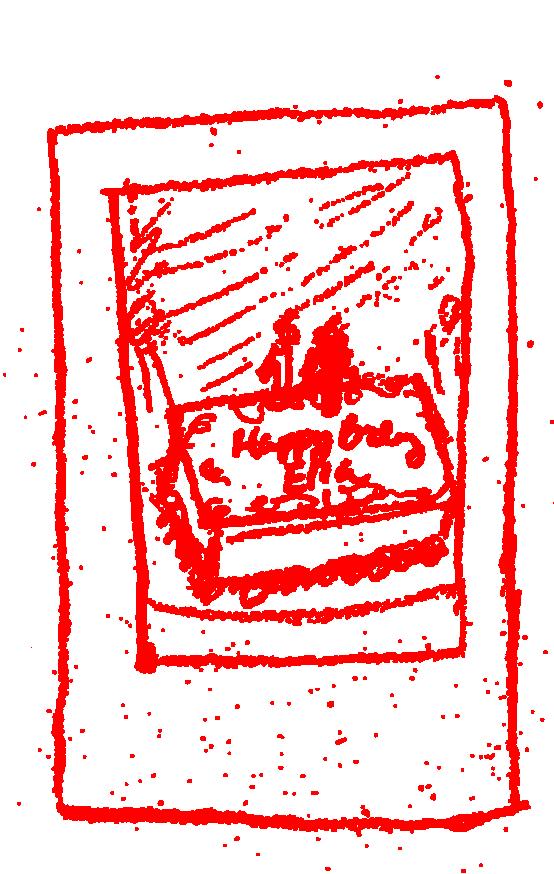
36
It took me a while to realize that the photos they’ve taken over the years represent the life they envisioned for me and my siblings. They want us to look back at these moments fondly, even if we’re the only ones who could notice the hint of annoyance and frustration we felt. We have evidence that we’ve lived well in spite of it all. Nothing was wasted.
Spending the holidays thousands of miles away, my dad messaged me a couple of days before the new year.
“You’re all still young, so there are many, many more years for all of us to get together,” he said. “That’s why I’m exercising and eating well so I can live longer and be with you all.”
If it only takes a single photo for my parents to be happy, how can I say no? Nowadays, they never fail to unravel the memories I had forgotten and moments I wish to experience again.
I make it a habit to send my mom and dad photos of new dishes I cook. I record the rusted foliage around Austin so they can see what winter looks like from my perspective. I show them the people who’ve made my life here in America worthwhile to lessen their worries. Like my parents – who feel homesick too – I’m trying to fearlessly capture time before it slips away.
37
“We have evidence that we’ve lived well in spite of it all. Nothing was wasted.”
Watering down culture
 BY ALISHBA JAVAID
BY ALISHBA JAVAID
38
Growing up I’d like to think I was “cultured”
I ate the South Asian food my mother cooked while conversing in Urdu I danced at South Asian weddings every other weekend in pretty lehengas I tuned into the latest Bollywood film and listened to its soundtrack Wasn’t that enough?
It took me 20 years to realize it wasn’t

That my culture is more than its food, fashion and entertainment That I was ignorantly blissful to the social issues plaguing the country
The floodings, the honor killings, the attacks on religious minorities A complex history rooted in colonialism:
The British rule, A Partition that created the country a civil war that split it
I was clueless about the politics The political parties, the issues of debate, the government forces To explore them to understand my identity and my roots better
This is all culture too
These are ideals harder to pass on from generation to generation
But I needed to engage and educate myself on them
But I made a commitment not to limit my culture to the pretty features
Because I owe it to myself to learn the full scope
39
Triptych
 BY BYRON XU
BY BYRON XU
40
I am tired of Tito’s and pretending.
The truism in me wants to write. Do not consecrate this ground with my sin. Here comes the feeling of loneliness again.
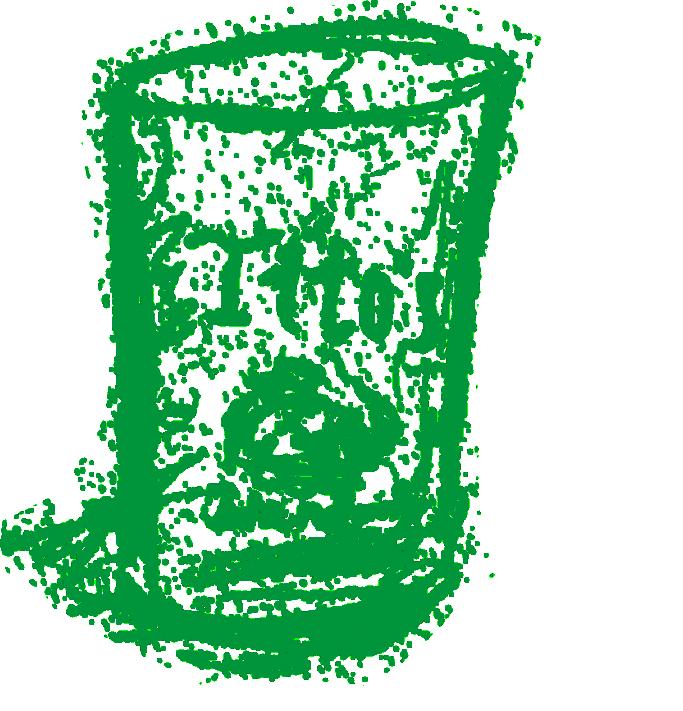
My professor rides horses on the beach with a married friend. He teaches us the Euclidean mind. A circle is not such a perfect shape. Instead I teach a survivor about spirals.
I smoke for the first time. I cannot see your face. I deny words unspoken in the space between us. Touching others is hard and a human is like the fall air.
41
42
colophon
TYPEFACES
PP Woodland from Pangram Pangram
PP Cirka from Pangram Pangram
AUTHENTIC Sans from Trisonic
UT AAJA SPRING 2023 OFFICERS
President — HILLARY MA
Vice President — KAUSHIKI ROY
Treasurer — MICHAEL ZHANG
Social Media — ANGELA LIM
Communications — DILEN LEE
Illustrations by Angela Lim
Layout design by Juleanna Culilap
43










 BY HILLARY MA
BY HILLARY MA



 BY DILEN LEE
BY DILEN LEE





 BY ALISHBA JAVAID
BY ALISHBA JAVAID

 BY BYRON XU
BY BYRON XU









